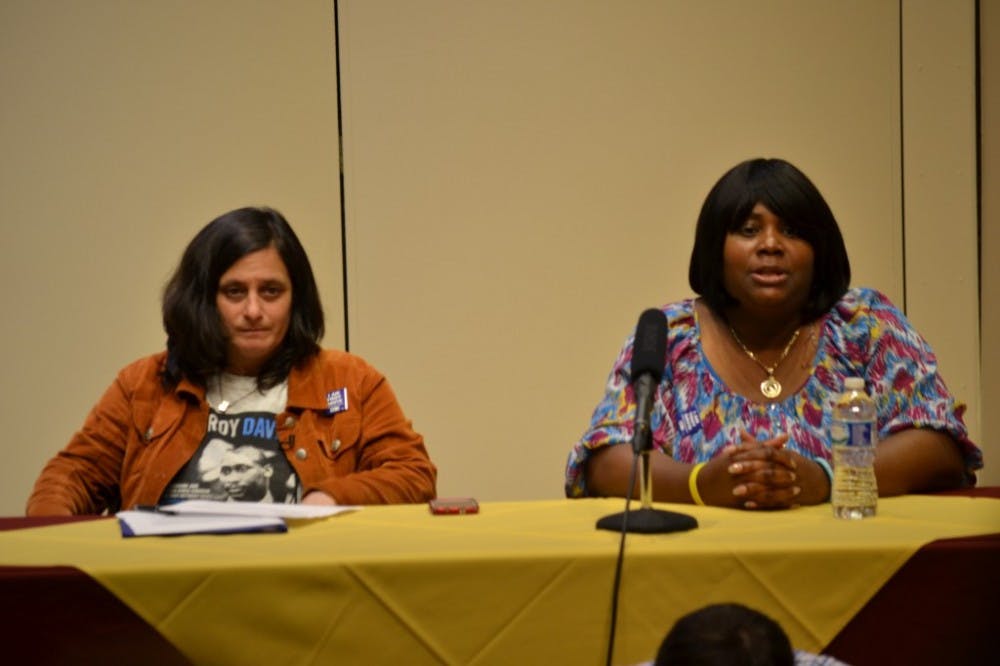Elon University hosted the event “Troy Davis: The Human Face of the Death Penalty” Thursday. Troy Davis’ case incited international controversy when the state of Georgia executed him in September 2011, despite compelling evidence to invoke reasonable doubt.
The program featured a discussion led by the sister of Troy Davis, Kimberly Davis, and co-author of “I Am Troy Davis,” Jen Marlowe. The seats, aisles and even the stage of Yeager Recital Hall were crowded with Elon students, faculty, staff and community members. Elon’s Criminal Justice Studies, Pre-Law Program, African and African-American Studies and Peace and Conflict Studies sponsored the event.
“The fight to end the death penalty —that is the fight that the rest of Troy’s family is still fighting in the trenches, day in and day out,” Marlowe said.
The presentation began with Davis recounting the details of her brother’s long legal battle. Troy Davis was convicted for the 1989 murder of police officer Mark MacPhail in Savannah, Georgia, in spite of a lack of substantial evidence.
During the 20 years between Davis’ conviction and execution, he gained public support worldwide, including that of Pope Benedict XVI, Archbishop Desmond Tutu, former President Jimmy Carter and the human rights organization Amnesty International.
An evidentiary hearing held in 2010 presented affidavits in which seven of the nine murder witnesses changed or recanted their previous testimony. Despite such defense efforts, the prosecution used further controversial evidence, which eventually resulted in Troy Davis’ conviction being upheld. The U.S Supreme Court denied the appeal of Davis’ case and he was executed Sept. 21, 2011.
“It was a case I didn’t know about,” said junior Emily Usher. “I really like the message they promoted, which was fighting against corruption in general.”
After Davis presented the details of Troy Davis’ struggle, Marlowe introduced several community members who read passages from her book, “I Am Troy Davis.”
The readers included Elon senior Alex Dawson, sophomore Tucker Kelly, University of North Carolina at Wilmington professor Kimberly Cook and human rights activist Tory Brown.
Marlowe reached out to the Davis family after seeing Troy Davis’ sister, Martina Davis, on the television show “Democracy Now.” During Troy Davis’ stay in prison, Marlowe was able to frequently correspond with Davis through writing letters. Marlowe used veiled questions in her letters, so Davis was able to aid in writing Marlowe’s book without being detected by strict prison officials.
After Troy’s execution, Martina received a letter from her brother urging her to write the book. Martina and Marlowe began worked on the book for the next two months, until she passed away from breast cancer.
Kimberly Davis urged audience members to fight against injustice.
“We need to take information into the community and stand up for something that’s right,” Davis said. “We need to stand up for what is right and stand up for justice.”
Following the presentation, Marlowe had T-shirts with “I Am Troy Davis” on them, with proceeds going to the educational fees of the Davis family children.


